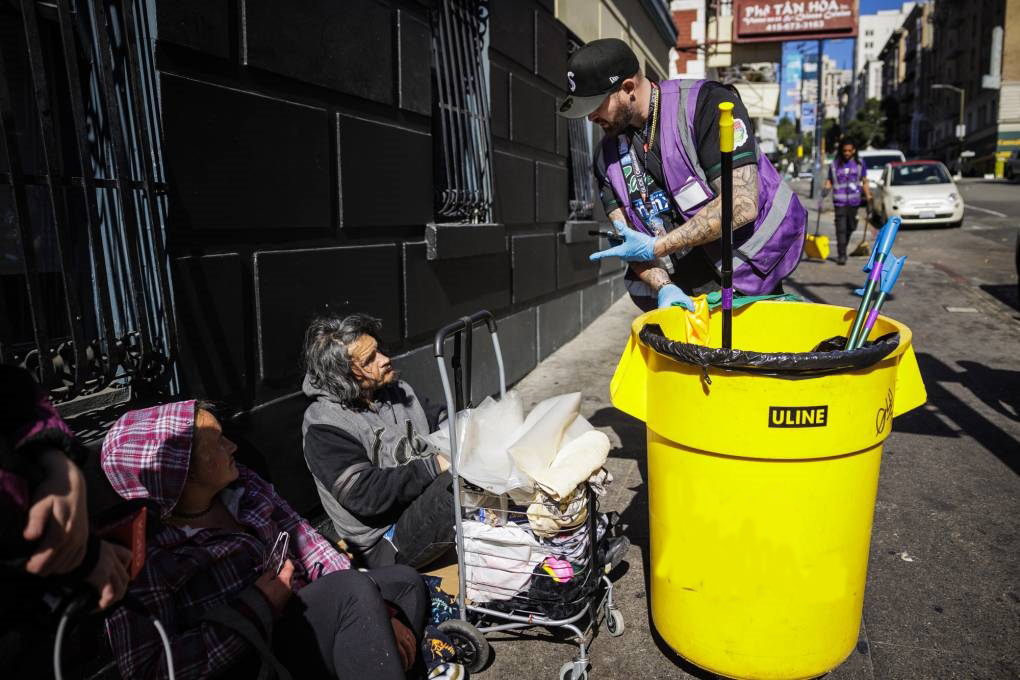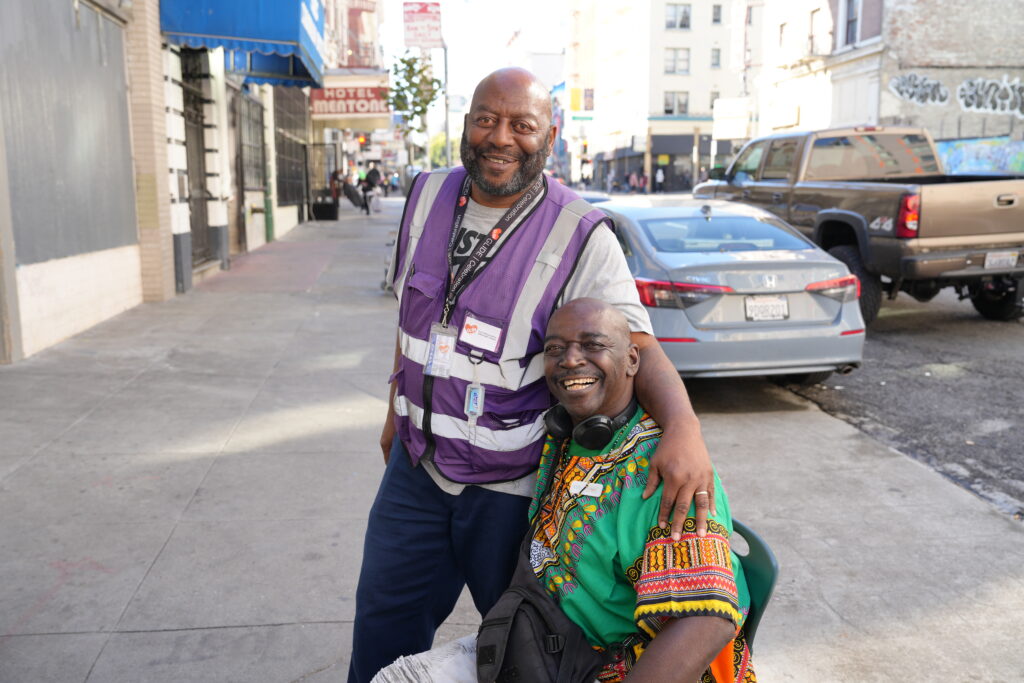Working with the Mayor to Support GLIDE’s Community Members Struggling with Substance Use
At GLIDE, the community is at the heart of everything we do. We see many opportunities to partner with the City in response to Mayor Lurie’s new Executive Directive, “Breaking the Cycle,” intended to address the homelessness and behavioral health crisis on our streets. Specifically, we see room to expand our community-centered approach to behavioral health in the following areas:

Improving treatment access:
We applaud the City’s dedication to cutting red tape and increasing access to low-barrier treatment and case management. No one seeking recovery should have their care jeopardized or delayed by completing mounds of paperwork or jumping through hoops. If we offer someone an easy way to start their recovery journey, we can onboard them onto Medi-Cal’s recovery options from there, instead of letting them slip through the cracks.
GLIDE’s enhanced case management model meets people wherever they are, and engages and motivates people towards health and recovery by addressing their immediate needs. The special sauce of our case management is we consistently build relationships over weeks, months, or years: however long it takes to stabilize someone. We appreciate Mayor Lurie’s willingness to treat people who use substances as whole people – people with complex lives and problems.

Investment in medication-assisted treatment:
We applaud the City’s investment in Medication-Assisted Treatment (MAT); an invaluable tool for liberating people from unhealthy relationships with substances. As part of this work, GLIDE can partner with the City, UCSF, and Ward 93 to increase people’s access to MAT.
We want to further partner with the city to have doctors, nurses, and social workers coming directly to our Health Access Hub to address urgent needs and write prescriptions for buprenorphine and methadone: key medications that help people fight the grip of addiction.
As a people-centered service provider focusing on the needs of low-income and homeless people, it is refreshing to see the City address the intersection between mental health, substance use, and homelessness.
Medications for Opioid Use Disorder (MOUDs) require people to handle navigation and case management. They help people get their lives back on track with access to social services, housing, shelter, detox, and more. The more investment in that work, the better.
Meeting people where they’re at:
Ideally, we envision our Health Empowerment and Access Vans and our Cecil Williams Community Ambassadors delivering care directly to people wherever they are. Our goal is to work with our medical partners to have a van specifically for those seeking Medications for Opioid Use Disorder.
There is a community need to expand these services to seven days a week. We want to be able to offer hope wherever and whenever people are struggling. In particular, we would like to contribute to keeping the neighborhood around 822 Geary Street (the new crisis stabilization unit SF is constructing) clean, safe, and healthy.
A holistic approach to recovery:
The late Reverend Cecil Williams, co-Founder of GLIDE, always said, “Everyone is in recovery.” He recognized that everyone has a habit or addiction they are trying to break: and therefore we can all support each other compassionately along our journeys. Reverend Cecil’s moral leadership inspires our 360-degree continuum of care. We meet with people who use substances along every step of their journey, and empower them to reach the next step.
We currently facilitate Alcoholics Anonymous and Narcotics Anonymous meetings as well as diverse health access services. With the City’s support, we will offer more support groups that practice contingency management (aka incentives to stay healthy) such as a breakfast club for people who need to take their medications with food in the morning or lockers for people to store their medications safely.
When nonprofits, the city, and the public work together, we can save more lives, treat more people suffering from substance use disorder, and make our streets and neighborhoods cleaner and safer for everyone.
GLIDE is looking forward to deepening and expanding our work to empower more people and transform more lives, continuing to break the cycles of poverty and marginalization.